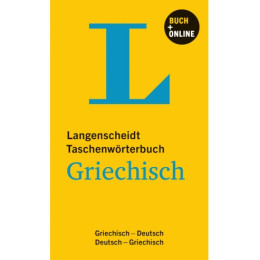The Constitution of Agency
Αντικαταβολή
Η πληρωμή των προϊόντων σας μπορεί να γίνει με μετρητά κατά την παράδοσή τους από την συνεργαζόμενη εταιρεία Ταχυμεταφορών στην έδρα σας. Η πληρωμή με αντικαταβολή εφαρμόζεται μόνο για παραδόσεις εντός Ελλάδας.
Κατά την παραλαβή των προϊόντων, θα σας ζητηθεί να υπογράψετε το δελτίο παραλαβής και να παραδώσετε στον εξουσιοδοτημένο αντιπρόσωπο της εταιρείας Ταχυμεταφορών το ποσό σε μετρητά (επιταγές δεν γίνονται δεκτές).
Σημειώνεται ότι οι ταχυμεταφορείς δεν είναι σε θέση να επιστρέψουν χρήματα, αν το ποσό που τους παραδοθεί υπερβαίνει το οφειλόμενο, οπότε φροντίστε να έχετε πάντοτε το ακριβές ποσό κατά την παραλαβή της παραγγελίας σας.
Στην πληρωμή με Αντικαταβολή υπάρχει επιβάρυνση στο πόσο της παραγγελιάς 1,90 € για το οποίο ενημερώνεστε αυτόματα κατά την ολοκλήρωση της παραγγελίας σας.
Η υπηρεσίας της αντικαταβολής είναι ανεξάρτητη με το κόστος των μεταφορικών.
Η υπηρεσία της αντικαταβολής είναι διαθέσιμη μέχρι το ποσό των 150€ (με ΦΠΑ). Άνω των 150€, θα πρέπει να πραγματοποιείται εξόφληση της παραγγελίας μέσω τραπεζικής κατάθεσης / πιστωτικής ή χρεωστικής κάρτας.
Η πληρωμή με αντικαταβολή δεν είναι διαθέσιμη για την αποστολή προϊόντων με μεταφορική εταιρεία & την Box Now.
Πιστωτική, χρεωστική ή προπληρωμένη κάρτα
Γίνονται δεκτές όλες οι χρεωστικές, πιστωτικές και προπληρωμένες κάρτες American Express, Visa, Mastercard, Maestro, Diners Club, Masterpass.
Όλες οι πληρωμές που πραγματοποιούνται με χρήση κάρτας διεκπεραιώνονται μέσω της πλατφόρμας ηλεκτρονικών πληρωμών της εκάστοτε τράπεζας που συνεργαζόμαστε και χρησιμοποιεί κρυπτογράφηση TLS 1.2 με πρωτόκολλο κρυπτογράφησης 128-bit (Secure Sockets Layer - SSL). Η κρυπτογράφηση είναι ένας τρόπος κωδικοποίησης της πληροφορίας μέχρι αυτή να φτάσει στον ορισμένο αποδέκτη της, ο οποίος θα μπορέσει να την αποκωδικοποιήσει με χρήση του κατάλληλου κλειδιού.
Για τις αγορές με την πιστωτική σας κάρτα ακολουθήσετε τις οδηγίες που υπάρχουν στο ηλεκτρονικό μας κατάστημα. Θα σας ζητηθεί να συμπληρώστε τη φόρμα παραγγελίας και τον αριθμό και την ημερομηνία λήξης καθώς επίσης και τον 3ψήφιο αριθμό (CVV) που αναγράφεται στο πίσω μέρος της πιστωτικής σας κάρτας.
Στην περίπτωση που επιλέξετε να πληρώσετε με πιστωτική κάρτα θα πρέπει να είστε παρών κατά την παραλαβή της παραγγελίας σας στο κατάστημα έχοντας μαζί σας την πιστωτική σας κάρτα και την ταυτότητά σας. Σε αυτή την περίπτωση (δηλ. πληρωμή μέσω πιστωτικής κάρτας) δεν επιτρέπεται η παραλαβή της παραγγελίας από τρίτο πρόσωπο που επιδεικνύει την πιστωτική κάρτα και επιθυμεί να πληρώσει με αυτή για εσάς.
Σε περίπτωση που η παραγγελία πραγματοποιείται στα στοιχεία και για λογαριασμό εταιρείας τότε η πιστωτική κάρτα που χρησιμοποιείτε να είναι εταιρική. Δηλαδή να έχει εκδοθεί στα στοιχεία τη αντίστοιχης εταιρείας. Κατά την παραλαβή της παραγγελίας θα πρέπει να βρίσκεται επίσης ο κάτοχος της εταιρική πιστωτικής κάρτας, με την κάρτα και την ταυτότητα του.
Άτοκες δόσεις πραγματοποιούνται άνω των 100€.
Κατάθεση μετρητών σε τράπεζα ή μέσω webbanking
Μπορείτε να καταθέσετε τα χρήματα της παραγγελίας σας σε οποιονδήποτε από τους παρακάτω λογαριασμούς. Για την καλύτερη εξυπηρέτηση σας, παρακαλούμε να δίνετε στην τράπεζα ως αιτιολογία το Ονοματεπώνυμο σας και τον Αριθμό Παραγγελίας. Στην συνέχεια παρακαλούμε αποστείλατε το αποδεικτικό κατάθεσης μέσω e-mail στο accounting@booksite.gr. Με την λήψη του αντίγραφου της τραπεζικής εντολής πληρωμής, δρομολογούμε την παραγγελία σας.
Υπάρχει επίσης η δυνατότητα να πραγματοποιήσετε μεταφορά των χρημάτων, χρησιμοποιώντας το web-banking κάποιας από τις αναγραφόμενες τράπεζες.
Εφόσον δεν πραγματοποιήσετε την κατάθεση των χρημάτων εντός 5 ημερών, τότε αυτόματα η παραγγελία σας ακυρώνεται.
| Τράπεζα | ΙΒΑΝ |
|
Alpha Bank |
GR1301403400340002330000907 |
|
Εθνική Τράπεζα |
GR1001101610000016100400023 |
|
Τράπεζα Πειραιώς |
GR2801720410005041104688990 |
|
Eurobank |
GR3102603810000080200776958 |
Δικαιούχος: ΛΑΖΑΡΗΣ ΠΕΤΡΟΣ ΚΑΙ ΣΙΑ ΕΕ
* Σε περίπτωση που υπάρχουν έξοδα μεταφοράς χρημάτων από μία τράπεζα σε άλλη τράπεζα, τότε αυτά βαρύνουν αποκλειστικά τον καταθέτη.
Παραλαβή και πληρωμή της παραγγελίας σας στο πλησιέστερο κατάστημα μας
Στο στάδιο «Τρόπος Πληρωμής» επιλέξτε την «Πληρωμή στο κατάστημα». Η επιλογή της πληρωμής στο κατάστημα θα μπορεί να πραγματοποιηθεί μόνο εφόσον έχει επιλεχθεί ως μέθοδος τρόπου αποστολής, η «Παραλαβή από Κατάστημα». Εφόσον η παραγγελία σας καταχωρηθεί έως τις 15:00 και τα προϊόντα είναι άμεσα διαθέσιμα, τότε την επόμενη εργάσιμη μέρα θα βρίσκονται στο κατάστημα που επιλέξατε.
Η παραγγελία σας θα παραμείνει στο κατάστημα που επιλέξατε για 5 μέρες μετά την παράδοση της σε αυτό. Η εξόφληση της παραγγελίας θα γίνει στο ταμείο του καταστήματος κατά την παραλαβή.
ΔΩΡΕΑΝ αποστολή ΠΑΝΕΛΛΑΔΙΚΑ για παραγγελίες άνω των 39 € *.
*Το βάρος της παραγγελίας θα πρέπει να είναι έως 2 kg (από τα 2kg και πάνω θα υπάρχει χρέωση ανά κιλό (kg)). Ισχύει για αποστολή με εταιρεία courier. Στην Boxnow το βάρος αφορά δέματα ως 20 kg, εκτός από τη Νησιωτική Ελλάδα όπου είναι 5 kg.
**Η χρέωση διαμορφώνεται σύμφωνα με τους παρακάτω πίνακες και μπορείτε να τη δείτε και στο καλάθι σας πριν την τοποθέτηση παραγγελίας.
Αποστολή με Courier
Το ηλεκτρονικό κατάστημα booksite.gr μπορεί να εξυπηρετήσει πελάτες σε όλη την Ελλάδα.
Τα έξοδα αποστολής ποικίλουν ανάλογα με τον τύπο, το μέγεθος και το βάρος των αντικειμένων.
Το booksite.gr συνεργάζεται με 5 εταιρείες ταχυμεταφορών Courier - "Γενική Ταχυδρομική" , "Elta Courier" , "TAS Courier" , "Courier Center" , "Bolt Courier" & "ACS courier" - προκειμένου να διασφαλίσει την άμεση παράδοση των προϊόντων σας, σε όλη την Ελλάδα. Όλα τα προϊόντα αποστέλλονται κατά κανόνα σε 1 - 3 εργάσιμες ημέρες από την παραγγελία σας, ανάλογα με τη διαθεσιμότητά τους. Σε περιπτώσεις όπου το προϊόν δεν είναι διαθέσιμο η αποστολή πραγματοποιείται κατά κανόνα σε 2 - 7 εργάσιμες μέρες. Στις δυσπρόσιτες περιοχές ενδέχεται να υπάρξει καθυστέρηση στην παράδοση επιπλέον 2-3 εργάσιμες ημέρες (εξαρτάται από την εκάστοτε εταιρεία courier).
- ΕΛΤΑ ΠΟΡΤΑ-ΠΟΡΤΑ (courier):
| Περιοχή |
Χρέωση έως 2kg | Επιπλέον άνω των 2kg |
| Αττική | 2,50 € | + 0,80 €/kg |
| Επαρχία | 2,70 € | + 1,00 €/kg |
*Εάν το δέμα δεν παραληφθεί και γυρίσω πίσω σε εμάς, τότε υπάρχει χρέωση επιστροφής ίση με την αξία αποστολής (εάν το δέμα δεν είχε χρέωση μεταφορικών λόγω προωθητικής ενέργειες, ισχύει ο αντίστοιχος τιμοκατάλογος - ο παραπάνω πίνακας).
- ΓΕΝΙΚΗ ΤΑΧΥΔΡΟΜΙΚΗ:
| Περιοχή |
Χρέωση έως 2kg | Επιπλέον άνω των 2kg |
| Αττική | 2,70 € | + 0,90 €/kg |
| Επαρχία | 4,20 € | + 1,30 €/kg |
| Νησιωτική Ελλάδα | 4,50 € | + 1,50 €/kg |
| Παραλαβή από κατάστημα - Αττική | 1,95 € | + 0,90 €/kg |
| Παραλαβή από κατάστημα - Επαρχία & Νησιά | 2,50 € | + 1,00 €/kg |
*Στις ΔΥΣΠΡΟΣΙΤΕΣ περιοχές υπάρχει επιβάρυνση ύψους 6,50€ και ενημερώνεστε πριν την αποστολή παραγγελίας εάν είναι εφικτό, ειδάλλως μόλις κάνει άφιξη στο κατάστημα που σας εξυπηρετεί!
**Εάν το δέμα δεν παραληφθεί και γυρίσω πίσω σε εμάς, τότε υπάρχει χρέωση επιστροφής ίση με την αξία αποστολής (εάν το δέμα δεν είχε χρέωση μεταφορικών λόγω προωθητικής ενέργειες, ισχύει ο αντίστοιχος τιμοκατάλογος - ο παραπάνω πίνακας).
*** Η παραλαβή από κατάστημα της Γενικής Ταχυδρομικής, υποδεικνύει την παραλαβή του δέματος από το πλησιέστερο κατάστημα της Γενικής Ταχυδρομικής. Εάν ο πελάτης επιθυμεί την παράδοση του δέματος σε νέα οριζόμενη διεύθυνση, τότε θα υπάρχει η χρέωση που ορίζεται από τον τιμοκατάλογο.
- WPS courier:
| Περιοχή |
Χρέωση έως 2kg | Επιπλέον άνω των 2kg |
| Αττική | 1,95 € | + 0,65 €/kg |
***Εάν το δέμα δεν παραληφθεί και γυρίσω πίσω σε εμάς, τότε υπάρχει χρέωση επιστροφής ίση με την αξία αποστολής (εάν το δέμα δεν είχε χρέωση μεταφορικών λόγω προωθητικής ενέργειες, ισχύει ο αντίστοιχος τιμοκατάλογος - ο παραπάνω πίνακας).
| Περιοχή |
Χρέωση έως 2kg | Επιπλέον άνω των 2kg |
| Αττική | 2,90 € | + 1,50 €/kg |
| Επαρχία | 3,90 € | + 1,80 €/kg |
*Εάν το δέμα δεν παραληφθεί και γυρίσω πίσω σε εμάς, τότε υπάρχει χρέωση επιστροφής ίση με την αξία αποστολής (εάν το δέμα δεν είχε χρέωση μεταφορικών λόγω προωθητικής ενέργειες, ισχύει ο αντίστοιχος τιμοκατάλογος - ο παραπάνω πίνακας).
- DHL - express (ΜΟΝΟ ΕΚΤΟΣ ΕΛΛΑΔΟΣ):
| Χρεώσεις |
Zone 1 & 2 |
Zone 3 |
Zone 4 |
Zone 5 |
Zone 6 |
Zone 7 |
| 0 - 1 kg | 15,00 € | 22,00 € | 24,00 € | 24,00 € | 26,00 € | 36,00 € |
| 1 - 3 kg | 22,00 € | 29,00 € | 34,00 € | 34,00 € | 36,00 € | 46,00 € |
| 3 - 5 kg | 31,00 € | 38,50 € | 48,00 € | 44,00 € | 46,00 € | 56,00 € |
| 5 - 6,5 kg | 39,00 € | 57,00 € | 60,00 € | 51,00 € | 53,00 € | 53,50 € |
| 6,5 - 8 kg | 39,00 € | 57,00 € | 72,00 € | 59,00 € | 61,00 € | 71,00 € |
| 8 - 10 kg | 43,00 € | 67,00 € | 89,00 € | 71,00 € | 73,00 € | 83,00 € |
- Δεν υποστηρίζεται η αντικαταβολή!
- Για παραγγελίες εώς 10 κιλά.
- Παράδοση σε 1-8 εργάσιμες ημέρες, ανάλογα με τη ζώνη παράδοσης. Στις ζώνες 1, 2 & 3 ο χρόνος παράδοσης είναι 1-3 εργάσιμες ημέρες.
- DHL - economy (ΜΟΝΟ ΕΚΤΟΣ ΕΛΛΑΔΟΣ):
| Χρεώσεις |
Zone 1 & 2 |
| 0 - 5 kg | 14,50 € |
| 5 - 10 kg | 20,00 € |
| 10 - 15 kg | 22,50 € |
| 15 - 20 kg | 24,50 € |
| 20 - 25 kg | 29,00 € |
| 25 - 30 kg | 33,50 € |
- Δεν υποστηρίζεται η αντικαταβολή!
- Για παραγγελίες εώς 30 κιλά.
- Παράδοση σε 2-7 εργάσιμες ημέρες.
Box Now - Παράδοση σε θυρίδα (locker):
Όλα τα προϊόντα αποστέλλονται κατά κανόνα σε 1 - 3 εργάσιμες ημέρες από την παραγγελία σας, ανάλογα με τη διαθεσιμότητά τους. Σε περιπτώσεις όπου το προϊόν δεν είναι διαθέσιμο η αποστολή πραγματοποιείται κατά κανόνα σε 2 - 7 εργάσιμες μέρες.
| Περιοχή |
Χρέωση έως 20kg ή έως 60 x 44 x 35 εκ. |
Χρέωση άνω των 20kg |
| Ελλάδα | 1,95 € | 1,95€ / 20kg |
| Περιοχή |
Χρέωση ως 5kg | Χρέωση ως 12kg | Χρέωση ως 20kg | Χρέωση άνω των 20kg |
| Νησιωτική Ελλάδα | 2,35 € | 3,10 € | 3,85 € | 3,85€ / 20kg |
- O πελάτης κατά την παραγγελία του επιλέγει το Αυτόματο Μηχάνημα Παραλαβής Δεμάτων το οποίο τον εξυπηρετεί.
- Λαμβάνει μέσω ηλεκτρονικού ταχυδρομείου ή τηλεφώνου όλες τις απαραίτητες πληροφορίες για την συλλογή της παραγγελίας του και ένα προσωπικό κωδικό (PIN)
- Επισκέπτεται και πληκτρολογεί τον κωδικό που έλαβε στο Αυτόματο Μηχανήματα Παραλαβής Δεμάτων (APM) της επιλογής του και αυτόματα ανοίγει μια θυρίδα από την οποία συλλέγει την παραγγελία του.
- Τα Αυτόματα Μηχανήματα παραλαβής δεμάτων της BoxNow λειτουργούν 24/7 εξασφαλίζοντας του πλήρη πρόσβαση.
- Μετά την παράδοση του δέματος από το booksite στην Box Now, μέσα σε 24-48 ώρες βρίσκεται στο επιθυμητό σημείο παράδοσης.
- Το δέμα θα παραμείνει στη θυρίδα του BoxNow Express για 48 ώρες. Κατόπιν αιτήματος στο www.boxnow.gr μπορείτε να παρατείνετε την παραμονή για άλλες 24 ώρες.
-
Η αποστολή με αυτήν την υπηρεσία είναι διαθέσιμη για παραγγελίες με μέγιστο βάρος τα 20 κιλά και διαστάσεις έως 60 x 44 x 35 cm. Εάν το δέμα σας υπερβαίνει κάποιο από τα παραπάνω θα επικοινωνήσουμε μαζί σας και θα σας ενημερώσουμε για τυχόν επιπλέον χρέωση λόγω αλλαγής μεταφορικής εταιρείας.
- Η πληρωμή με αντικαταβολή δεν είναι διαθέσιμη.
- Εάν το δέμα δεν παραληφθεί και γυρίσω πίσω σε εμάς, τότε υπάρχει χρέωση επιστροφής ανάλογη των κιβωτίων που εστάλησαν. Δηλαδή για κάθε κιβώτιο η χρέωση της αποστολής και της επιστροφής θα είναι 1,95Χ2 = 3,90€.
Αποστολή με Μεταφορική Εταιρεία για ογκώδη δέματα
- Για παραγγελίες που αφορούν μεγάλα / βαριά / ογκώδη αντικείμενα η αποστολή μπορεί να γίνει με μεταφορική εταιρεία, κατόπιν συνεννόησης με το προσωπικό μας.
- Η παράδοση των προϊόντων από μεταφορική εταιρεία γίνεται εντός ορίων πόλεως. Σε περίπτωση παράδοσης δεμάτων εκτός ορίων πόλεων ή δυσπρόσιτων περιοχών, η παράδοση θα γίνεται στο κοντινότετο σημείο, το οποίο συνήθως προσδιορίζεται ως το κέντρο του νομού ή της πλησιέστερης μεγαλούπολης.
- Εάν δεν είναι δυνατή η παράδοση στο χώρο σας από τη μεταφορική εταιρεία, ενδέχεται να πρέπει να παραλάβετε το δέμα από τις εγκαταστάσεις της μεταφορικής εταιρείας, για το οποίο θα έχετε ενημερωθεί εξαρχής.
- Η παράδοση των προϊόντων γίνεται "επί πεζοδρομίου".
- Ο χρόνος παράδοσης υπολογίζεται σε 2-5 εργάσιμες ημέρες.
- Η πληρωμή με αντικαταβολή δεν είναι δυνατή στην περίπτωση αυτή. Η παραγγελία θα πρέπει να έχει εξοφληθεί με χρέωση πιστωτικής / χρεωστικής κάρτας ή με κατάθεσή / μεταφορά χρημάτων σε τραπεζικό λογαριασμό.
| Βάρος* | Αττική (Εντός Αθηνών) | Αττική (Εκτός Αθηνών) | Επαρχία*** |
| 0 - 15.000 kg | 7,00 € | 12,50 € | 10,00 € - 14,00 € |
| 15.001 - 25.000 kg | 8,00 € | 14,00 € | 15,00 € - 22,00 € |
| 25.001 - 40.000 kg | 10,00 € | 15,00 € | 25,00 € - 30,00 € |
| 40.001 - 50.000 kg | 12,00 € | 17,00 € | 33,00 € - 40,00 € |
| 50.001 - 65.000 kg | 14,00 € | 18,00 € | 38,00 € - 47,00 € |
| 65.001 - 75.000 kg | 15,00 € | 20,00 € | 42,00 € - 55,00 € |
| 75.001 - 90.000 kg | 16,00 € | 23,00 € | 46,00 € - 60,00 € |
| 90.001 - 280.000 kg | 18,00 € | 26,00 € | 53,00 € - 70,00€ |
| Περισσότερο από 280.000 kg | 20,00 € | 29,00 € | 70,00 € - 90,00 € |
* Το βάρος για τα ογκώδη αντικείμενα υπολογίζεται ως εξής: (Ύψος x Πλάτος x Μήκος) / 5.000
**Εάν το δέμα δεν παραληφθεί και γυρίσω πίσω σε εμάς, τότε υπάρχει χρέωση επιστροφής ίση με την αξία αποστολής (εάν το δέμα δεν είχε χρέωση μεταφορικών λόγω προωθητικής ενέργειες, ισχύει ο αντίστοιχος τιμοκατάλογος - ο παραπάνω πίνακας).
*** Στην Επαρχία η χρέωση ποικίλει ανάλογα την περιοχή.
Παραλαβή από κατάστημα
Στο στάδιο «Τρόπος Αποστολής» επιλέξτε την «Παραλαβή από κατάστημα». Στη συνέχεια αφού επιλέξετε και τον τρόπο πληρωμής, γράψτε στα σχόλια από ποιό κατάστημα θα θέλατε να παραλάβετε την παραγγελία σας. Εφόσον η παραγγελία σας καταχωρηθεί έως τις 12:00 και τα προϊόντα είναι άμεσα διαθέσιμα, τότε την επόμενη εργάσιμη θα βρίσκονται στο κατάστημα που επιλέξατε.
Η παραγγελία σας θα παραμείνει στο κατάστημα που επιλέξατε για 5 μέρες μετά την παράδοση της σε αυτό. Η εξόφληση της παραγγελίας μπορεί να γίνει και στο ταμείο του καταστήματος κατά την παραλαβή.
ΑΠΟΣΤΟΛΗ ΓΙΑ ΚΥΠΡΟ ME ELTA & KRONOS EXPRESS
- Οι αποστολές προς Κύπρο αναχωρούν είτε αεροπορικώς είτε ακτοπλοϊκώς σε συνεργασία με την ELTA courier & την Kronos Express:
Περιοχή Χρέωση έως 2kg Επιπλέον άνω των 2kg Αεροπορικά (1-3 εργάσιμες ημέρες) 18,60 € + 2,80 €/kg Ακτοπλοϊκά (4-15 εργάσιμες ημέρες)* 10,00 € ισχύουν ειδικές συνθήκες - αυτόματος υπολογισμός στο καλάθι σας
*Η παράδοση πραγματοποιείται σε 4-15 εργάσιμες ημέρες (ακτοπλοϊκά). Επίδοση 1 φορά την εβδομάδα. Φόρτωση κάθε Τετάρτη, με άφιξη στην Κύπρο κάθε Τρίτη.
- Μπορείτε να εντοπίσετε το δέμα σας εδώ https://www.kronosexpress.com/...
- Εφαρμόζεται μόνο η πληρωμή με κατάθεση σε τραπεζικό λογαριασμό ή μέσω χρεωστικής / πιστωτικής κάρτας
**Εάν το δέμα δεν παραληφθεί και γυρίσω πίσω σε εμάς, τότε υπάρχει χρέωση επιστροφής ίση με την αξία αποστολής (εάν το δέμα δεν είχε χρέωση μεταφορικών λόγω προωθητικής ενέργειες, ισχύει ο αντίστοιχος τιμοκατάλογος - ο παραπάνω πίνακας).
ΑΠΟΣΤΟΛΗ ΓΙΑ ΚΥΠΡΟ ME BOX NOW
Box Now - Παράδοση σε θυρίδα (locker):
Όλα τα προϊόντα αποστέλλονται κατά κανόνα σε 1 - 3 εργάσιμες ημέρες από την παραγγελία σας, ανάλογα με τη διαθεσιμότητά τους. Σε περιπτώσεις όπου το προϊόν δεν είναι διαθέσιμο η αποστολή πραγματοποιείται κατά κανόνα σε 2 - 7 εργάσιμες μέρες.
| Περιοχή |
Χρέωση έως 4kg ή έως 60 x 44 x 16 εκ. |
| Κύπρος | 9,90 € |
- O πελάτης κατά την παραγγελία του επιλέγει το Αυτόματο Μηχάνημα Παραλαβής Δεμάτων το οποίο τον εξυπηρετεί
- Λαμβάνει μέσω ηλεκτρονικού ταχυδρομείου ή τηλεφώνου όλες τις απαραίτητες πληροφορίες για την συλλογή της παραγγελίας του και ένα προσωπικό κωδικό (PIN)
- Επισκέπτεται και πληκτρολογεί τον κωδικό που έλαβε στο Αυτόματο Μηχανήματα Παραλαβής Δεμάτων (APM) της επιλογής του και αυτόματα ανοίγει μια θυρίδα από την οποία συλλέγει την παραγγελία του.
- Τα Αυτόματα Μηχανήματα παραλαβής δεμάτων της BoxNow λειτουργούν 24/7 εξασφαλίζοντας του πλήρη πρόσβαση.
- Μετά την παράδοση του δέματος από το booksite στην Box Now, μέσα σε 48 ώρες βρίσκεται στο επιθυμητό σημείο παράδοσης.
- Το δέμα θα παραμείνει στη θυρίδα του BoxNow Express για 48 ώρες. Κατόπιν αιτήματος στο www.boxnow.cy μπορείτε να παρατείνετε την παραμονή για άλλες 24 ώρες.
-
Η αποστολή με αυτήν την υπηρεσία είναι διαθέσιμη για παραγγελίες με μέγιστο βάρος τα 4 κιλά και διαστάσεις έως 60 x 44 x 16 cm. Εάν το δέμα σας υπερβαίνει κάποιο από τα παραπάνω θα επικοινωνήσουμε μαζί σας και θα σας ενημερώσουμε για τυχόν επιπλέον χρέωση λόγω αλλαγής μεταφορικής εταιρείας.
- Η πληρωμή με αντικαταβολή δεν είναι διαθέσιμη.
- Εάν το δέμα δεν παραληφθεί και γυρίσω πίσω σε εμάς, τότε υπάρχει χρέωση επιστροφής ανάλογη των κιβωτίων που εστάλησαν. Δηλαδή για κάθε κιβώτιο η χρέωση της αποστολής και της επιστροφής θα είναι 9,90Χ2 = 19,80€.
ΕΠΙΣΤΡΟΦΕΣ ΠΡΟΙΟΝΤΩΝ
- Ο πελάτης του www.booksite.gr έχει το δικαίωμα να επιστρέψει το προϊόν που αγόρασε και να το αντικαταστήσει με κάποιο άλλο. Σύμφωνα με την γενική πολιτική επιστροφών της εταιρείας, ο πελάτης δικαιούται να επιστρέψει προϊόντα και να ζητήσει την αντικατάστασή τους εντός προθεσμίας 14 ημερών από την παραλαβή τους και μόνο στην περίπτωση που τα προϊόντα είναι καινούργια και χωρίς φθορές, δεν έχουν αποσφραγισθεί ή δεν έχει παραβιασθεί η συσκευασία τους και συνοδεύονται από όλα τα έγγραφα και τα πρωτότυπα παραστατικά αγοράς. Στην περίπτωση αυτή ο πελάτης επιβαρύνεται με το ανάλογο κόστος μεταφοράς παλαιού και νέου προϊόντος πλην της παράδοσης στο φυσικό κατάστημα. Eάν η επιστροφή δεν πραγματοποιηθεί εντός της ανωτέρω διάρκειας των 14 ημερών ή δεν πληροί κάποια από τις απαιτήσεις, η εταιρεία δικαιούται να μην αποδεχθεί την επιστροφή των προϊόντων και την αντικατάστασή τους.
- Όταν ένα προϊόν παραληφθεί, το βάρος της απόδειξης παραλαβής ελαττωματικού προϊόντος βαρύνει τον πελάτη. Εάν ο πελάτης παραλάβει κάποιο προϊόν με ανοιγμένη ή φθαρμένη συσκευασία, η «ΠΕΤΡΟΣ ΛΑΖΑΡΗΣ ΚΑΙ ΣΙΑ ΕΕ» δεν φέρει ευθύνη για την κατάσταση του προϊόντος. Ο πελάτης μπορεί να αρνηθεί την παραλαβή του προϊόντος εάν αντιληφθεί ότι η συσκευασία του έχει παραβιαστεί, έχει φθαρεί και ότι το προϊόν ενδέχεται να είναι ελαττωματικό. Επιπλέον, εάν ένα προϊόν χρειάζεται συναρμολόγηση, τότε ο πελάτης υποχρεούται να ελέγξει πριν την συναρμολόγηση εάν υπάρχουν όλα τα κομμάτια, καθότι αφού αρχίσει η συναρμολόγηση το προϊόν δεν επιστρέφεται. Για τα είδη που έχουν ειδική εργοστασιακή συσκευασία θα πρέπει να μην έχει παραβιαστεί ή φθαρεί η συσκευασία τους.
- Δικαίωμα υπαναχώρησης από τις εξ αποστάσεως συμβάσεις βάσει του Ν. 2251/1994.
Πέραν των ανωτέρω, ο πελάτης δικαιούται να υπαναχωρήσει από τις εξ αποστάσεως συμβάσεις βάσει του Ν. 2251/1994 εντός 14 ημερολογιακών ημερών χωρίς να δώσει οποιαδήποτε εξήγηση και να επιστρέψει τα προϊόντα που αγόρασε και να ζητήσει την επιστροφή των χρημάτων του και μόνο στην περίπτωση που τα προϊόντα είναι καινούργια, δεν έχουν αποσφραγισθεί ή δεν έχει παραβιασθεί η συσκευασία τους και συνοδεύονται από τα πρωτότυπα νόμιμα έγγραφα (απόδειξη, τιμολόγιο κλπ).
Η προθεσμία υπαναχώρησης λήγει 14 ημερολογιακές ημέρες από την επομένη ημέρα της παράδοσης των προϊόντων στον πελάτη ή στο τρίτο πρόσωπο, διάφορο από τον μεταφορέα, που υποδείχθηκε από τον πελάτη ή:
- Από την ημέρα κατά την οποία ο πελάτης ή ένα τρίτο μέρος που υποδεικνύεται από αυτόν, διαφορετικό από τον μεταφορέα, αποκτά την φυσική κατοχή του αγαθού, σε περίπτωση πολλών αγαθών παραγγελθέντων από τον πελάτη με μία παραγγελία και παραδιδόμενων χωριστά.
- Από την ημέρα κατά την οποία ο πελάτης ή ένα τρίτο μέρος που υποδεικνύεται από αυτόν, διαφορετικό από τον μεταφορέα, αποκτά την φυσική κατοχή της τελευταίας παρτίδας ή του τελευταίου τεμαχίου, σε περίπτωση παράδοσης αγαθού αποτελούμενου από πολλές παρτίδες ή πολλά τεμάχια.
- Από την ημέρα κατά την οποία ο πελάτης ή ένα τρίτο μέρος το οποίο υποδεικνύεται από αυτόν, διαφορετικό από τον μεταφορέα, αποκτά την φυσική κατοχή του πρώτου αγαθού, σε περίπτωση σύμβασης τακτικής παράδοσης αγαθών σε καθορισμένη χρονική περίοδο.
- Στην περίπτωση επιστροφής και αντικατάστασης ΟΕΜ προϊόντος (Original Equipment Manufacturer -κατασκευαστής του αρχικού εξοπλισμού), η εταιρεία δικαιούται να το αντικαταστήσει με προϊόν ΟΕΜ άλλου κατασκευαστή χωρίς να δεσμεύεται από την χώρα προέλευσής του, με τα ίδια όμως χαρακτηριστικά.
ΑΣΚΗΣΗ ΔΙΚΑΙΩΜΑΤΟΣ ΥΠΑΝΑΧΩΡΗΣΗΣ
Προκειμένου να ασκηθεί το δικαίωμα υπαναχώρησης ο πελάτης οφείλει να ενημερώσει την εταιρεία για την απόφασή του να υπαναχωρήσει από την παρούσα σύμβαση με μία ξεκάθαρη δήλωση (πχ επιστολή που θα σταλεί στην ηλεκτρονική διεύθυνση: info@booksite.gr. Μπορεί να χρησιμοποιηθεί το συνημμένο υπόδειγμα εντύπου υπαναχώρησης.
Για την τήρηση της προθεσμίας υπαναχώρησης είναι αρκετό να σταλεί η δήλωση περί άσκησης του δικαιώματος υπαναχώρησης πριν λήξει η προθεσμία υπαναχώρησης.
Η εταιρεία μας οφείλει να κοινοποιήσει αμεληττί στον πελάτη επιβεβαίωση παραλαβής της δήλωσης υπαναχώρησης, ο δε πελάτης φέρει το βάρος της απόδειξης ότι άσκησε το δικαίωμα υπαναχώρησης
ΣΥΝΕΠΕΙΕΣ ΥΠΑΝΑΧΩΡΗΣΗΣ
- Εάν ο πελάτης υπαναχωρήσει από την συναφθείσα σύμβαση, η εταιρεία θα επιστρέψει όλα τα χρήματα που έλαβε από αυτόν, πλην των δαπανών παράδοσης, χωρίς αδικαιολόγητη καθυστέρηση και οπωσδήποτε εντός 14 ημερολογιακών ημερών από την ημέρα που θα πληροφορηθεί την απόφαση υπαναχώρησης από την σύμβαση. Στην περίπτωση μη παραλαβής παραγγελίας με box now, χρεώνεται και η επιστροφή του δέματος πίσω στην εταιρεία μας (για τις ακριβρείς χρεώσεις, συμβουλευτείτε τους τρόπους και τα έξοδα αποστολής στο αντίστοιχο σημείο, όπου γίνεται αναφορά για τη boxnow).
- Η εταιρεία θα εκτελέσει την ανωτέρω επιστροφή χρημάτων χρησιμοποιώντας το ίδιο μέσο πληρωμής που ο πελάτης χρησιμοποίησε στην αρχική συναλλαγή, εκτός εάν έχει συμφωνηθεί ρητώς κάτι διαφορετικό. Στην περίπτωση που ο πελάτης έχει πληρώσει με αντικαταβολή ή με τραπεζική κατάθεση, θα πρέπει να δώσει το ονοματεπώνυμο του και το ΙΒΑΝ του τραπεζικού λογαριασμού του. Η εταιρεία δεν φέρει ουδεμία ευθύνη για την ημερομηνία που θα πιστωθούν τα χρήματα στον λογαριασμό του, στην περίπτωση που η μεταφορά γίνει από διαφορετική τράπεζα από αυτή που αυτός διατηρεί.
- Σε κάθε περίπτωση δεν θα χρεωθούν έξοδα για την επιστροφή χρημάτων μέχρις ότου λάβει πίσω τα αγαθά ή μέχρις ότου ο πελάτης παράσχει αποδείξεις ότι έστειλε πίσω τα αγαθά, όποιο από δύο συμβεί πρώτο.
- Ο πελάτης οφείλει να στείλει πίσω τα αγαθά ή να τα παραδώσει σε οποιοδήποτε φυσικό κατάστημα της εταιρείας, χωρίς αδικαιολόγητη καθυστέρηση και οπωσδήποτε εντός 14 ημερολογιακών ημερών από την ημέρα που δήλωσε ότι υπαναχωρεί από την συναφθείσα σύμβαση. Η προθεσμία θεωρείται ότι έχει τηρηθεί εάν τα αγαθά σταλούν πίσω πριν από την λήξη της περιόδου των 14 ημερών.
- Στην περίπτωση υπαναχώρησης ο πελάτης θα επιβαρυνθεί με το ανάλογο κόστος επιστροφής των αγαθών πλην των περιπτώσεων επιστροφής σε φυσικό κατάστημα καθώς και των περιπτώσεων στις οποίες με υπαιτιότητα της εταιρείας εστάλησαν λανθασμένα προϊόντα ή προϊόντα με πραγματικά ελαττώματα οπότε η εταιρεία αναλαμβάνει κάθε κόστος μεταφοράς του παλαιού και νέου προϊόντος. Το βάρος της απόδειξης μετά την παραλαβή των προϊόντων βαρύνει τον πελάτη.
- Ο καταναλωτής ευθύνεται για τυχόν μείωση της αξίας των αγαθών μόνο ως αποτέλεσμα της διαχείρισης των αγαθών άλλην πλην εκείνης που είναι αναγκαία για την διαπίστωση της φύσης, των χαρακτηριστικών και της λειτουργίας των αγαθών. Ο καταναλωτής δεν ευθύνεται σε καμία περίπτωση για οποιαδήποτε μείωση της αξίας των αγαθών όταν η εταιρεία δεν έχει παράσχει κοινοποίηση του δικαιώματος υπαναχώρησης.
ΕΞΑΙΡΕΣΕΙΣ ΑΠΟ ΤΟ ΔΙΚΑΙΩΜΑ ΥΠΑΝΑΧΩΡΗΣΗΣ – ΕΠΙΣΤΡΟΦΗΣ.
Το δικαίωμα επιστροφής και υπαναχώρησης που προβλέπονται σύμφωνα με τα ανωτέρω αναφερόμενα δεν ισχύουν στις ακόλουθες περιπτώσεις:
- προμήθεια βιβλίων εκδοτικών οίκων εσωτερικού και εξωτερικού κατόπιν ειδικής παραγγελίας του καταναλωτή
- προμήθεια αγαθών που κατασκευάζονται σύμφωνα με τις προδιαγραφές του καταναλωτή ή σαφώς εξατομικευμένων αγαθών
- προμήθεια σφραγισμένων αγαθών τα οποία δεν είναι κατάλληλα προς επιστροφή για λόγους προστασίας της υγείας ή για λόγους υγιεινής και τα οποία έχουν αποσφραγιστεί μετά την παράδοση, όπως πλαστελίνες, μαρκαδόροι κλπ
- προμήθεια αγαθών τα οποία λόγω της φύσης τους είναι αναπόσπαστα αναμεμειγμένα ή συνδεδεμένα με άλλα στοιχεία
- προμήθεια σφραγισμένων ηχητικών εγγραφών ή σφραγισμένων εγγραφών βίντεο ή σφραγισμένου λογισμικού για υπολογιστές που αποσφραγίστηκαν μετά την παράδοση
- προμήθεια ψηφιακού περιεχομένου μην περιεχομένου πάνω σε υλικό μέσο εάν η εκτέλεση ξεκίνησε με την προηγούμενη ρητή συγκατάθεση του καταναλωτή και την επιβεβαίωση εκ μέρους τους ότι χάνει έτσι το δικαίωμα υπαναχώρησης.
ΕΝΤΥΠΟ ΥΠΑΝΑΧΩΡΗΣΗΣ
Το παρόν έντυπο αφορά την επιστροφή προϊόντων που έχουν αγοραστεί από το ηλεκτρονικό κατάστημα Booksite (www.booksite.gr).
Μπορείτε να το βρείτε πατώντας εδώ: ΕΝΤΥΠΟ ΕΠΙΣΤΡΟΦΗΣ
ΕΠΙΣΤΡΟΦΕΣ ΜΕ BOX NOW
Εάν επιλέξετε να επιστρέψετε το δέμα σας μέσω της boxnow η χρέωση είναι 1,95€ / δέμα.
Μπορείτε να ακολουθήσετε την διαδικασία βήμα-βήμα πατώντας στον παρακάτω σύνδεσμο: https://returns.boxnow.gr/returns-step-one/138/866/BookSite





























































































































































